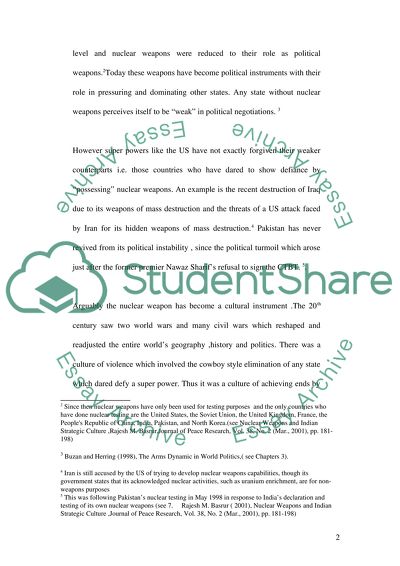Cite this document
(“Nuclear Weapon Essay Example | Topics and Well Written Essays - 1500 words”, n.d.)
Nuclear Weapon Essay Example | Topics and Well Written Essays - 1500 words. Retrieved from https://studentshare.org/politics/1506124-nuclear-weapon
Nuclear Weapon Essay Example | Topics and Well Written Essays - 1500 words. Retrieved from https://studentshare.org/politics/1506124-nuclear-weapon
(Nuclear Weapon Essay Example | Topics and Well Written Essays - 1500 Words)
Nuclear Weapon Essay Example | Topics and Well Written Essays - 1500 Words. https://studentshare.org/politics/1506124-nuclear-weapon.
Nuclear Weapon Essay Example | Topics and Well Written Essays - 1500 Words. https://studentshare.org/politics/1506124-nuclear-weapon.
“Nuclear Weapon Essay Example | Topics and Well Written Essays - 1500 Words”, n.d. https://studentshare.org/politics/1506124-nuclear-weapon.


